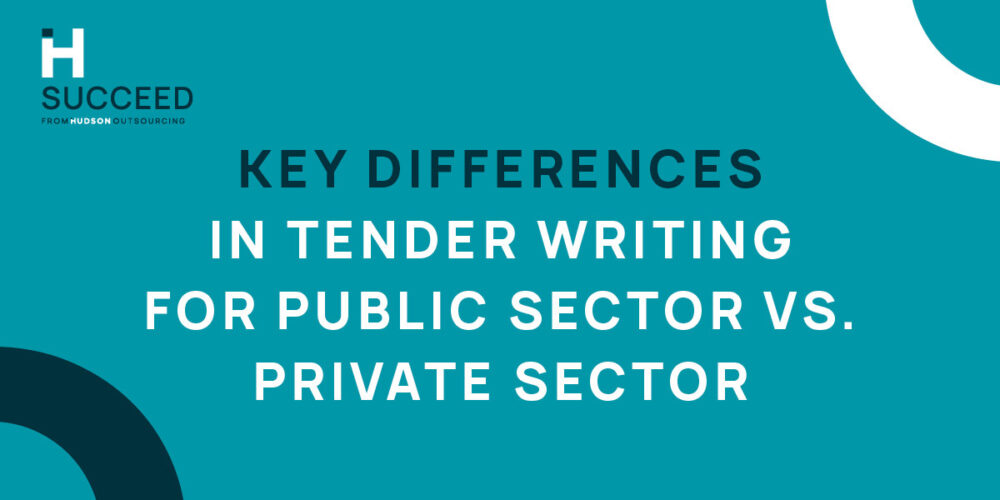What is a Mini Competition in Procurement?
Last updated: Dec 17, 2021 @ 9:47 am
The world of procurement has a lot of confusing terminologies, and you might have come across the term mini competition. You might be wondering what it is and what it means if it’s noted in your tender documents.
So, let’s start off with the basics; what is a mini competition?
A mini competition is essentially a competition needed in order to secure a place on a call off contract. A call-off contract is an individual contract that falls under a framework agreement. If you’re with me so far, this is essentially what a mini competition is. A supplier needs to win a mini competition for a place on a call off contract within a framework agreement.
Why is a mini competition used?
During the tendering process you may see this term crop up often. A procurer will run a mini competition to refine their requirements while retaining the benefits offered under the collaborative agreement.
When running a mini competition, a procurer must:
- Comply with the terms of the framework agreement
- Decide on the level of service they want
- Decide on how they will assess the bids following any rules the framework noted
- Choose if they want to run an expression of interest process
- Send an invitation to tender to all supplier that can provide what they need
- Fairly assess the tender responses they get
- Choose the supplier that offers the best value for money
- Award the contract to the winning supplier.
5 benefits buyers have running a mini competition under a framework agreement
-
Speed
A mini competition saves time when procuring a good or service. If a supplier is already on a framework, they don’t need to re-submit a full tender submission. This saves time for both suppliers and buyers as a buyer doesn’t have to evaluate a full tender submission again.
There’s no need for a buyer to assess successful suppliers’ capability or capacity. This is because they have already passed the minimum eligibility criteria such as financial standing and health and safety requirements.
-
Savings
Through mini competitions, buyers will likely end up with additional cost savings. This is because the pricing is not fixed or is fixed at a minimum level. So, it’s important to remember this when pricing your services or works. Remember to price your service or product competitively. Try not to undercut your competitors by too much as this may also lead the buyers to question your legitimacy.
-
Increased competition and options
Mini competitions can create multiple opportunities and increased competition from suppliers. This allows buyers to reassess the suppliers on the framework and pick their favourite option.
-
Best value
A buyer will be seeking bids that achieve the best value when hosting a mini competition. They are often able to achieve it because they have specific requirements. It’s important to remember this when pricing your services and writing your response.
-
Refining their requirements
Carrying on from best value, mini competitions allow buyers to refine their requirements. They may have refined their requirements during the initial framework agreement. However, a mini competition allows them to refine it even further from the basic contract terms.
The mini competition process
-
The invitation to tender (ITT) is issued for a call off contract
A buyer will release an ITT for mini competition for the call off contract. Although they can’t change the basic terms or specification from the original framework agreement, they may change:
- Delivery timescales
- Payment or invoicing arrangements
- Associated services such as training, installation and maintenance
- Quantity
- Functional specification.
As mentioned above, a buyer can refine the basic terms of the framework agreement when making a call off contract. All important information and details of the contract will be stated in the specification.
This may not necessarily be in the form of an ITT as it could simply be an invitation to quote (ITQ). This is more often the case as suppliers have already submitted their quality submissions to get on the framework.
If a buyer wants to know how many suppliers are interested in bidding, then they can issue an EOI. An EOI is an expression of interest. If you are interest as a supplier, you can respond. A buyer will then send their ITT to suppliers who responded.
-
Write and submit your response
Once a supplier has read all of the tender documents, they can start with their response. The format and what needs to be included will be included within the mini competition tender documents.
-
Evaluation
The bid documents will state how the mini competition is to be evaluated. Depending on the buyer, it could be done using the lowest price or using MEAT. The MEAT stands for most economically advantageous tender. A buyer cannot use award criteria that weren’t detailed in the original framework.
If being assessed via the lowest price, a buyer will first assess a supplier’s ability to meet their needs. This will be outlined in the specification and could include the quantity of the goods or services required and delivery etc. Then, they will look at the price. If several suppliers meet their needs, then the call off may be awarded to the lowest price quoted. This is depending on the buyer, and this type of evaluation is more likely to occur in the private sector.
If a buyer is assessing a mini competition using MEAT a supplier’s responses for quality and price will be evaluated. The exact criteria that they will use to judge will be listed in the specification.
-
Contract awarded
Once a buyer has evaluated all the submissions, the call off contract can be awarded to the supplier of choice. All bidders will be notified of the outcome.
Where can I find framework agreements?
You may be wondering where you can find framework agreements or tendering opportunities for your business. There’s no shortage of websites offering multi-sector tendering opportunities and leads. Ideally, you should be searching for a sector-specific site that posts all unique, public and private sector opportunities.
Simply relying on CPV codes can result in missed opportunities as they are often mislabelled. Finding a portal that uploads and categorises tenders by keywords, location and budget and more can streamline the process. Our sister company, Hudson Discover, hosts 11 sector-specific tendering portals. One centralised and easy-to-navigate portal can help you save time, streamlining the process.
These sectors consist of;
Once signed up, you’ll have access to your own dedicated Account Manager. They’ll be able to answer any more questions you may have about mini competitions. You’ll also get an email alert when new and relevant tenders are uploaded to your sector.
Need help securing a place on a framework agreement?
We understand that running your own business can be fairly time-consuming. You don’t necessarily have the time or resources to write a bid response in-house.
If this is the case, outsourcing to bid writing experts can help you win your next public sector contracts. Here at Hudson Succeed, we pride ourselves on being tender writing experts.
We hold an 87% success rate and have over 60 years of collective bid writing experience. We offer four levels of bid writing support to suit every business need. Whether you’re completely new to tendering or need a response proofread before you submit – we can help. Our services include:
Tender Writing
Once you’ve found the perfect public sector contract for your business, send it our way. Our Bid Writers can take care of the whole thing for you they’ll even submit it on your behalf. They’ll let you know what they need from you, providing you with a full Tender Writing breakdown. They’ll help you write a winning bid response.
Tender Ready
Our Tender Ready 4-week programme is perfect for businesses that have never tendered before. A Bid Writer will work with you to ensure you have everything in place to tender successfully. Tender Ready offers your business:
- A 12-month subscription to one Hudson Discover
- Access to Global Bid Directors and Senior Bidding Professionals.
- An Organisation-wide Bid library, including 3 case studies, 5 CVs and policies.
- Additional flexible benefits.
Tender Improvement
If you’ve been tendering but aren’t seeing success from your current efforts, our Tender Improvement package can help. Our Bid Team will assess your previous responses and tender documents. They will work with you to improve for future submissions. This package includes a 12-month subscription to a Hudson Discover portal and additional tendering development services.
Tender Mentor
If you’ve written your own tender response and need it double-checking for errors, Tender Mentor can help. A Bid Writer will proofread your work for any inconsistencies, grammar or spelling mistakes. They will also ensure it’s in line with the specification before you submit.
Discover Elite
Upgrading to Discover Elite can help optimise your tendering efforts – even when you’re busy. Our two new time-saving tools can improve your competitor awareness and success rate when tendering.
The Ultimate Time Saver package offers your business:
- A maximum of five tender breakdowns per month.
- An annual subscription to a maximum of two Hudson Discover sector-specific portals. This option can help businesses that overlap two industries such as Technology and Healthcare, for example.
- Pre-market and award engagement notices monitored on your behalf.
- Buyer portal management, including registration, password management, downloading documents and assessing viability based on your bid or no-bid strategy.
- Weekly phone calls with your dedicated Account Manager to discuss viable tendering and framework opportunities.
The Become a Pre-Bid Master package also includes:
- All of the above.
- Up to seven tender breakdowns per month.
- A Bid Strategy delivered by a Senior Bid Manager with a minimum of 5 years of experience. It will also be managed by our Global Bid Director.
Contact us to find out how we can help your business grow.
Find more helpful tips and advice in our blogs. We cover topics including:








